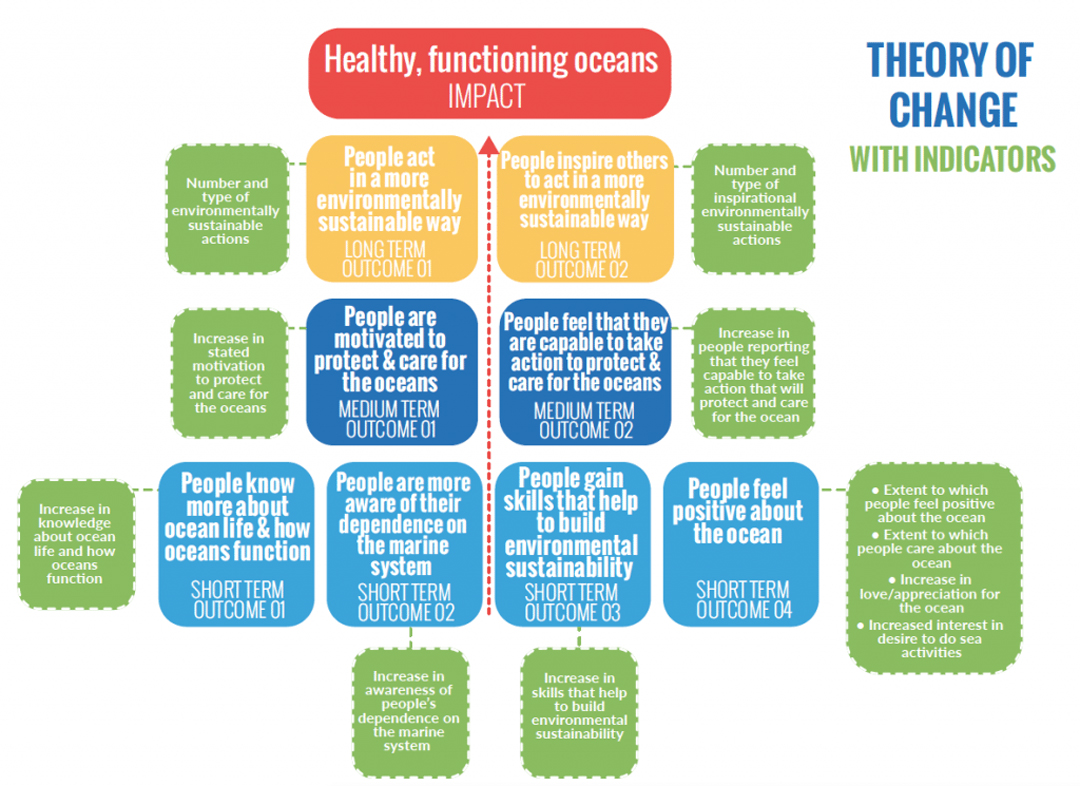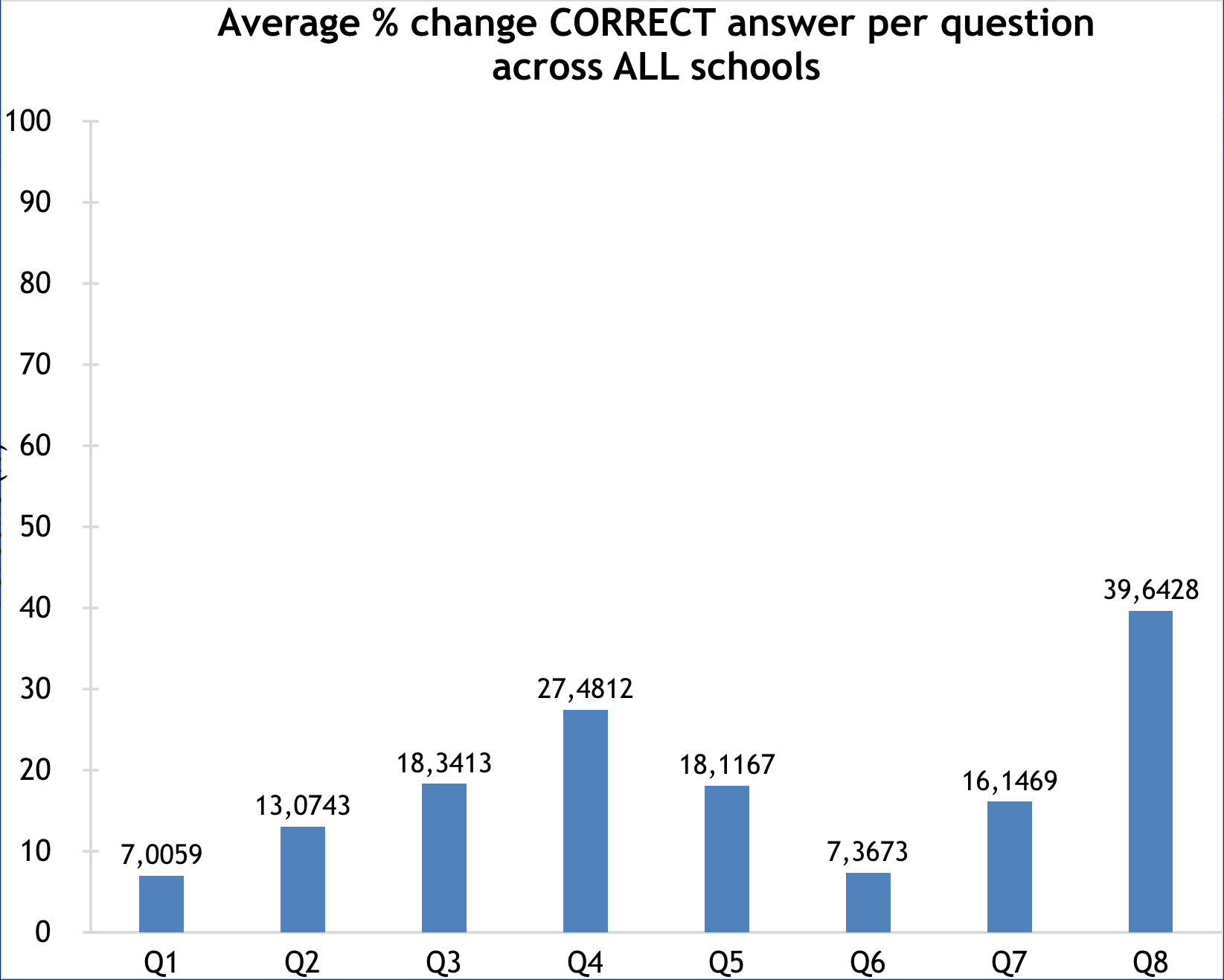A year of reflection
Last year the Shark Education Centre developed a Monitoring, Evaluation and Learning (MEL) system to measure its social and environmental impact. We built a framework to look at short-, mid- and long-term outcomes and assigned indicators for each of these outcomes which will help us reach our desired educational impact (i.e. a healthy functioning ocean).
One of the data tools used was a knowledge questionnaire. Learners in visiting groups were asked a set of eight questions at the start and end of their visit.
- Do you like sharks?
- Do all shark teeth look the same?
- Are all sharks big?
- Do humans need the oceans to survive?
- Can some creatures live out of the water at low tide?
- Are sharks threatened?
- Can humans harm the oceans?
- Do sharks help to keep the ocean healthy?
The two sets of answers were then scored and compared. This data tool is used as an indicator for short-term outcome 1: People know more about Ocean life and function, and short-term outcome 2: People are aware of their dependence on the marine system.
A year later, we have collected data that we can use to reflect on our education programme and guide us going forward. So, are we having an impact?
From March to December 2018, we interviewed 33 school groups that had visited the Centre. These groups ranged from Grade 1 to 11 and consisted of 1 690 students in total. Results indicate that there is a definite increase in knowledge and awareness. This is evidence that we are reaching our short-term outcomes 1 and 2.
Having a closer look at the data, we can also identify questions/topics which did not score very well (i.e. not many learners got these questions correct). This will allow us to better evaluate the educational programme in order to improve communication and learning of key messages.



